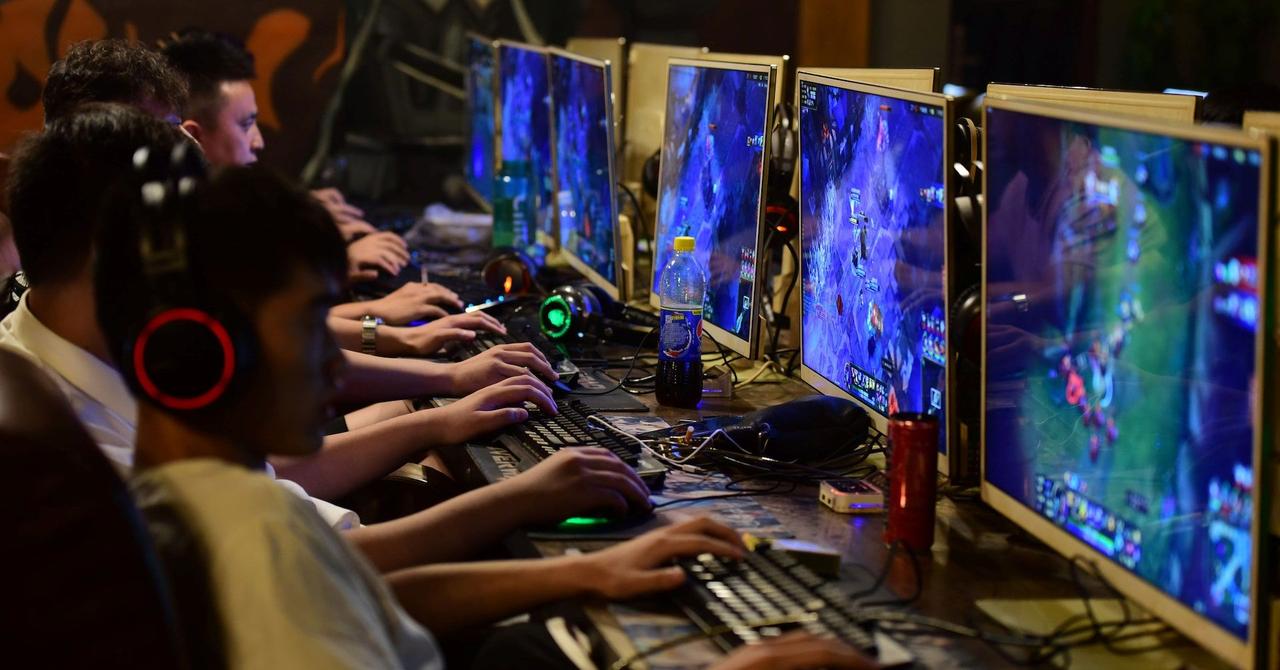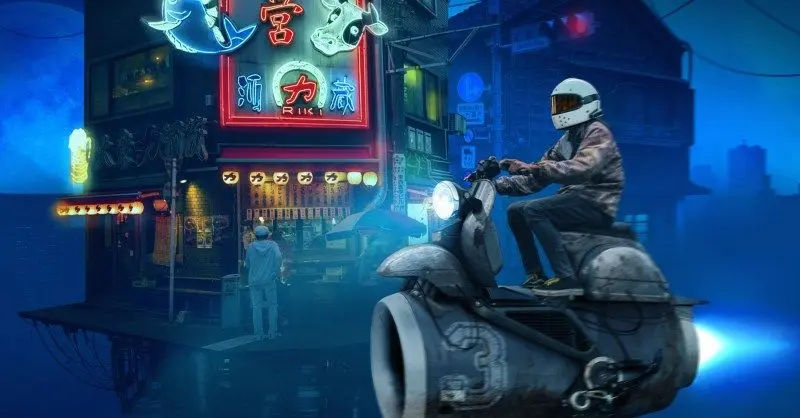AI Gaming Revolution: Transforming the Industry with Immersive Experiences and Market Growth
2 Sources
2 Sources
[1]
How AI Gaming is Transforming the Industry?
The gaming industry is perpetually evolving, and artificial intelligence (AI) represents its most significant breakthrough. AI-powered gaming technology revolutionizes virtual worlds through advanced character development, sophisticated game dynamics, and intelligent systems. These innovations enhance player engagement, creating immersive and dynamic gaming experiences that redefine the industry's frontier.
[2]
AI in Gaming: Just How Big Is It?
Key market players using AI include Capcom, Electronic Arts, Gameloft SE, Google, Konami, Microsoft, Nintendo, NVIDIA and Unity. Artificial intelligence (AI) is revolutionising industries across the board, and the gaming sector is no exception. From using AI-generated content for the game to creating video games from simple text prompts, the impact of AI on gaming is growing at an unprecedented pace. But how significant is the influence of AI on gaming? How is AI currently shaping game development, and what does the future hold for its role in creating the next generation of games? As reported by Technavio, the AI-focused gaming market is forecasted to experience extraordinary growth, with a boost of $27.47 billion between 2025 and 2029 at a compound annual growth rate (CAGR) of 42.3%. Key market players using AI include Capcom, Electronic Arts, Gameloft SE, Google, Konami, Microsoft, Nintendo, NVIDIA, Sony, Take-Two Interactive Software, Tencent, Ubisoft Entertainment SA, and Unity. Moreover, data shared by Tracxn with AIM revealed that 137 gaming companies worldwide, those founded since 2020, are using AI, and six of them are based in India. This is evident in the graph shared below. As mentioned in the report, there are a few factors that drive growth. These include: AI improves virtual and augmented reality by making games more immersive and interactive. It employs AI algorithms to create 3D visuals, enhancing player experiences on platforms such as Microsoft HoloLens, and advancing sensor technology. Furthermore, due to the rise of social media and mobile gaming, cloud gaming is in demand. Expensive rigs are not required to play the game; instead, cloud-based infrastructure can be rented, or an existing one can be used to play games from anywhere. "AI technologies, including machine learning and neural networks, power advanced features like ray tracing and realistic physics simulations in games like Cyberpunk 2077, Battlefield V, and Red Dead Redemption 2," the report added. As per a survey by A16Z Games, while 73% of the game studios already use AI, 88% of the studios plan to use AI soon. Notably, 85% of the executives and founders wanted to use AI, but only 58% of the artists were interested. Among the studios utilising AI, 39% reported more than a 20% boost in productivity, and 25% of them saw almost 20% cost savings. Most people in the industry are excited about incorporating AI into game development. Pinankk D Shah, a game producer and creative director for mobile games, told AIM about how AI helps in the art side of things, "I think on the art side, people are already using AI a fair bit, including myself. One of the major uses currently helping me or many others is to make quick concepts." "So, if I have a concept in mind, I can generate ideas fairly quickly and also get more ideas using AI, which expands my thought process and also makes exploring possibilities a lot easier," he added. Chip makers like AMD are also in talks with game engine developers to explore ways to leverage models that are more generative in nature, as stated by Jason Banta, the vice president and general manager of AMD's Client OEM, in an interview with Laptop Mag. Ubisoft, a game studio popularly known for titles like Assassin's Creed, is also working on generative AI prototypes for non-playable characters (NPCs) in the game. NVIDIA also introduced ACE autonomous game characters earlier this year, which allows NPCs to perceive, plan, and act like human players. This enables the support game character to be more useful in players' missions and makes the enemies adapt to their strategies, proving to be challenging. Games like PUBG and NARAKA: BLADEPOINT also use the same tech to provide players with a co-playable character and AI companions. Games like Call of Duty by Activision and similar major multiplayer games have started integrating AI into their anti-cheat mechanisms to catch cheaters efficiently and more accurately. From creating lifelike NPCs and dynamic game worlds to enhancing realism and gameplay experiences, gaming is slated to get more interesting. Forecast reports mention that AI-enabled platforms and deep learning ML models are helping to improve matchmaking and prediction, even with network latency being a challenge in multiplayer gaming. The report also mentions high processing power requirements as another challenge to tackle in the AI-enabled gaming industry. Perhaps, with new data centres being built, more startups and companies will be able to tap into integrating AI into their games. While the number of Indian startups in this market is extremely low, the potential of the market could encourage more founders and developers to create video games using AI, giving rise to AI-enabled video game development in the country.
Share
Share
Copy Link
The gaming industry is experiencing a significant transformation due to AI, with market growth projections, increased studio adoption, and enhanced gaming experiences through AI-powered technologies.

AI Gaming Market Set for Explosive Growth
The gaming industry is on the cusp of a revolutionary transformation, with artificial intelligence (AI) at the forefront. According to a forecast by Technavio, the AI-focused gaming market is projected to experience extraordinary growth, with an expected boost of $27.47 billion between 2025 and 2029, at a compound annual growth rate (CAGR) of 42.3%
2
. This surge in AI adoption is reshaping the landscape of game development and player experiences.Key Players and Market Dynamics
Major tech giants and game developers are leading the charge in AI integration. Companies such as Capcom, Electronic Arts, Google, Microsoft, Nintendo, NVIDIA, and Unity are among the key market players leveraging AI technologies
2
. The industry is witnessing a proliferation of AI-focused gaming startups, with 137 companies founded since 2020 worldwide, including six based in India2
.AI Adoption in Game Studios
A survey by A16Z Games reveals that 73% of game studios are already using AI, with 88% planning to incorporate it in the near future
2
. The adoption of AI technologies has led to significant improvements in productivity and cost savings:- 39% of studios reported more than a 20% boost in productivity
- 25% experienced almost 20% cost savings
2
Related Stories
Transformative AI Applications in Gaming
AI is revolutionizing various aspects of game development and gameplay:
-
Enhanced Visuals and Immersion: AI algorithms are creating more immersive 3D visuals and improving virtual and augmented reality experiences
2
. -
Cloud Gaming: The rise of social media and mobile gaming has increased demand for cloud-based gaming infrastructure, making high-end gaming more accessible
2
. -
Advanced Graphics: AI technologies power features like ray tracing and realistic physics simulations in games such as Cyberpunk 2077 and Red Dead Redemption 2
2
. -
Concept Art and Design: Game producers are using AI to quickly generate and explore concept ideas, expanding creative possibilities
2
. -
Non-Playable Characters (NPCs): Companies like Ubisoft and NVIDIA are developing AI-powered NPCs that can perceive, plan, and act like human players, enhancing gameplay dynamics
2
. -
Anti-Cheat Mechanisms: Major multiplayer games like Call of Duty are integrating AI into their anti-cheat systems for more efficient and accurate detection of cheaters
2
.
Challenges and Future Prospects
While AI gaming shows immense potential, there are challenges to overcome:
-
Processing Power: The high processing power requirements for AI-enabled gaming remain a hurdle
2
. -
Network Latency: This continues to be a challenge in multiplayer gaming, although AI-enabled platforms and deep learning models are helping to improve matchmaking and prediction
2
.
As the gaming industry continues to evolve, AI is poised to play an increasingly crucial role in creating more sophisticated, immersive, and dynamic gaming experiences. The projected market growth and widespread adoption by game studios indicate that AI gaming is not just a trend, but a fundamental shift in the industry landscape
1
2
.References
Summarized by
Navi
[1]
Related Stories
AI Agents Revolutionize Game Development: 87% of Developers Already on Board
19 Aug 2025•Technology

Generative AI Usage in Steam Games Surges by 700% in 2025, Raising Concerns and Opportunities
17 Jul 2025•Technology

Gaming Industry Grapples with AI Revolution as Developers Fear Job Displacement
03 Nov 2025•Technology

Recent Highlights
1
ByteDance's Seedance 2.0 AI video generator triggers copyright infringement battle with Hollywood
Policy and Regulation

2
Demis Hassabis predicts AGI in 5-8 years, sees new golden era transforming medicine and science
Technology

3
Nvidia and Meta forge massive chip deal as computing power demands reshape AI infrastructure
Technology





